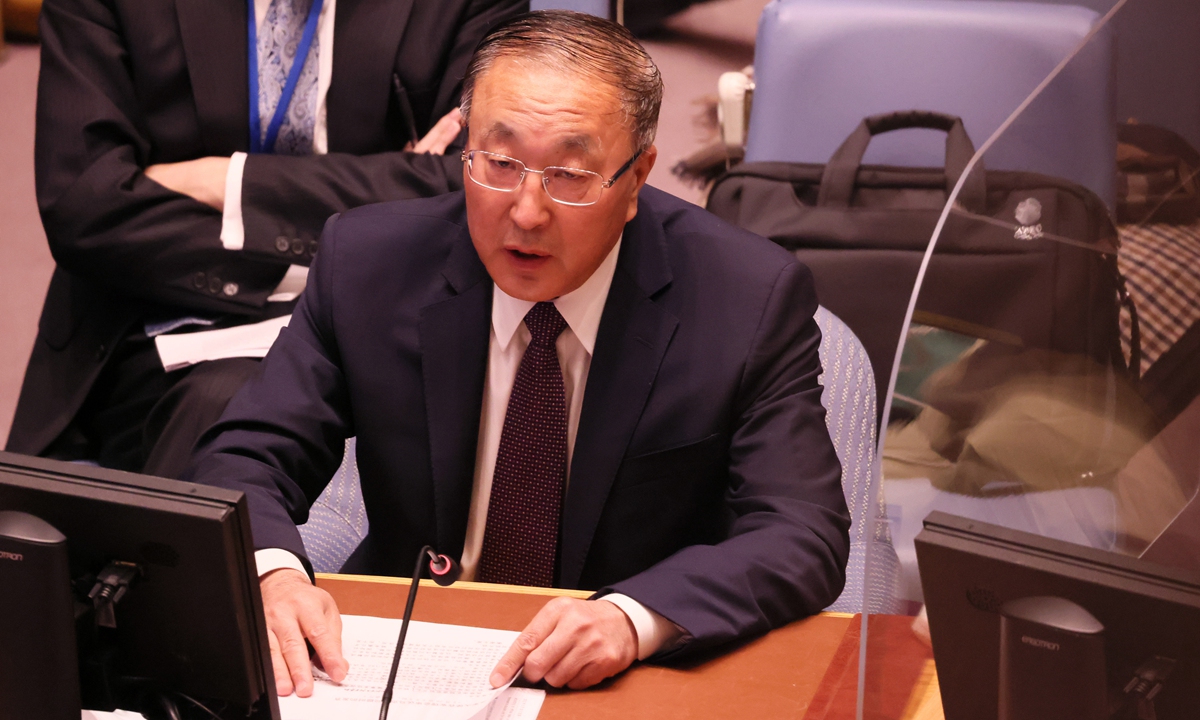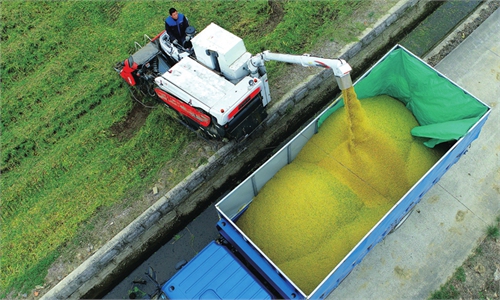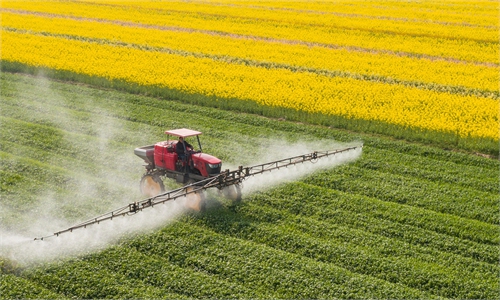China calls for intl community to strengthen coordination, stabilize the global food market

Zhang Jun, China's Permanent Representative to the United Nations (UN) Photo: CFP
China has called for the international community to strengthen coordination and stabilize the global food market, China's Permanent Representative to the United Nations (UN) Zhang Jun said at the UN Security Council Open Debate on conflict and food security on Thursday.
Zhang called for the international community to stay calm, objective and take practical measures to holistically look at the food security issue to tackle the global food security challenge. The current food crisis is caused by reduced supply, logistical disruption, and in particular rising prices, Zhang said.
To fill the supply gap, the international community needs to work together to seek diversified food supplies, and maintain the smooth operation of agricultural trade internationally. "It is important to bring back to the international market agricultural products and fertilizers from Ukraine, Russia, and Belarus," Zhang said. Zhang welcomed the efforts of the UN Secretary-General Antonio Guterres to this end.
The West and Russia blame each other as global food crisis worsens. US Secretary of State Antony Blinken accused Russia on Thursday that the food supply for millions of Ukrainians and millions of people around the world has been held hostage by the Russian military.
Russian Ambassador to the United States Anatoly Antonov on Wednesday blamed that unwise macroeconomic moves of Western countries have impacted global food security, according to media reports.
Zhang also called for the scaling up emergency assistance to help vulnerable countries weather the storm. In the past year, some 193 million people in 53 countries and regions faced food insecurity. And the situation this year will only get worse. When people do not have enough to eat, social problems and even security problems will arise.
Also, the international community needs to promote deep transformation and enhance the resilience of the global food system. Like many food crises faced since the 20th century, the current crisis once again brings to light the structural problems of the global food system, Zhang said, noting that the world food supply and demand pattern is characterized by food production highly concentrated in a few countries, while consumer countries are geographically dispersed.
"This makes the balance of food supply and demand highly vulnerable to extreme weather conditions, pandemics, armed conflicts, and other emergency and unforeseen factors."
Zhang emphasized that the world today is facing multiple crises. There is no greater crisis than the prevalence of hegemony and power politics, which poses serious challenges to international equity and justice. "What the world needs the most is true multilateralism, consistent, exemplary, and responsible actions of major countries, and global cooperation that is equal and inclusive, where we work together, and we share together."


